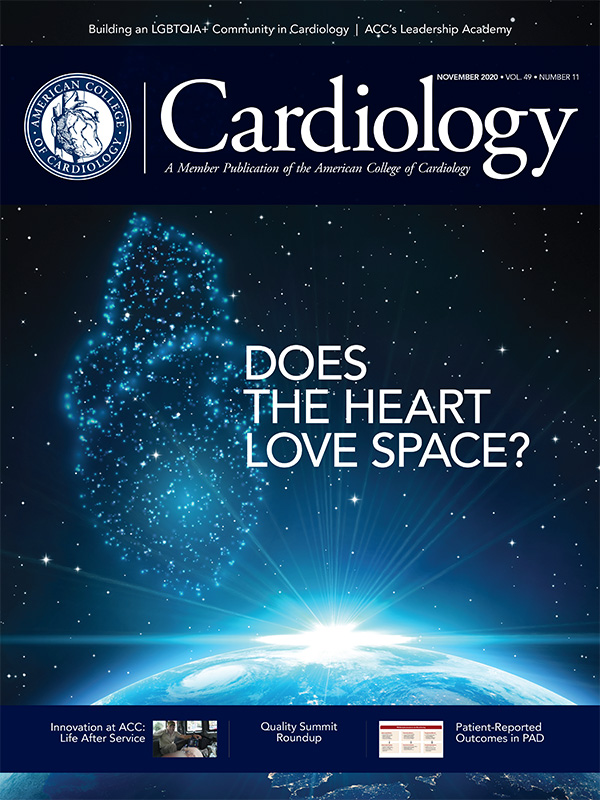Women Underrepresented in Authorship of HF RCTs
Women are underrepresented as lead, senior and corresponding authors of heart failure (HF) randomized clinical trials (RCTs), and the proportion of women in such authorship positions did not change between 2000 and 2019, according to a study published Oct. 19 in the Journal of the American College of Cardiology.
Sera Whitelaw, BSc; Pamela S. Douglas, MD, MACC; Harriette G.C. Van Spall, MD, MPH, et al., looked at the gender distribution of authors of impactful HF RCTs and explored clinical trial characteristics independently associated with women as lead authors. The authors searched three biomedical databases for HF RCTs published between January 2000 and May 2019 in journals with an impact factor ≥10. Full-text manuscripts reporting primary outcomes were included.
In total, the researchers assessed 403 RCTs by 4,346 authors, including 852 (19.6%) women. The proportion of women authors did not change significantly during the study period. Among all authors, women comprised 63 (15.6%) lead authors, 52 (12.9%) senior authors and 46 (11.4%) corresponding authors. In multicenter trials, 28 (12.1%) lead authors were women. For device trials and drug trials, five (1.2%) and 35 (7.9%) of lead authors, respectively, were women.
The 403 RCTs were published in 14 medical journals. In journals that published at least 20 RCTs during the study period, the proportion of lead authors who were women was highest in the European Journal of Heart Failure (23.1%), the Journal of the American Medical Association (22.2%) and the Journal of the American College of Cardiology (14.7%). Women were less likely to be lead authors in multicenter vs. single-center RCTs or in RCTs coordinated in North America or Europe vs. Central or South America. In addition, women had lower odds of lead authorship in RCTs testing drug interventions or in RCTs with men in the senior authorship position.
The study demonstrates that women are underrepresented in authorship of HF RCTs, a finding that "parallels the gender gap among physicians in cardiovascular subspecialties," according to the researchers. It should be a priority to "enhance the recruitment, retention and career advancement of women as clinical trialists in cardiology," they note, concluding that "recruiting, training and advancing women as leaders of RCTs may be a strategic way – among others – to rapidly increase the proportion of women leading RCTs."
In an accompanying editorial comment, Michelle M. Kittleson, MD, PhD, FACC, writes that "defining the problems is the first step to devising the solutions," adding that the study authors offered several "concrete and actionable solutions" to increase authorship among women. There will be a "level playing field when senior cardiologists actively advocate for equal participation in clinical trial leadership; when industry sponsors prioritize diversity and inclusion in clinical trial steering committees; and when there is blinded review of grants, manuscripts, and applications," she writes.
Clinical Topics: Heart Failure and Cardiomyopathies, Acute Heart Failure
Keywords: Authorship, Leadership, Sex Factors, Journal Impact Factor, Writing, Physicians, Heart Failure, Europe
< Back to Listings


